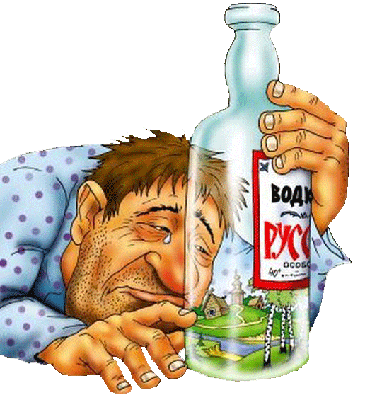Diagnosis
You're likely to start by seeing your doctor. If your doctor suspects you may have a problem with your alcohol intake, he or she may refer you to a mental health professional.
To evaluate your problem with alcohol, your doctor will likely:
- Ask several questions regarding your drinking habits. Ask your permission to speak with family members or friends. However, confidentiality laws prevent your doctor from giving any information about you without your consent.
- Perform a medical examination. Your doctor may do a physical exam and ask some questions about your health. There are many physical signs that indicate complications from drinking alcoholic beverages.
- Laboratory and imaging tests Although there are no specific tests to diagnose alcohol use disorder, there are certain types of laboratory tests that may strongly explain this. You may need to have tests to identify health problems that may be related to drinking alcohol. It is possible to detect damage to your organs through these tests.
- Complete a psychological assessment. This evaluation incorporates inquiries concerning your side effects, considerations, sentiments, and ways of behaving. You might be approached to finish a poll to assist with responding to these inquiries.
- Using the Diagnostic and Statistical Manual of Mental Disorders (DSM-5). The Diagnostic and Statistical Manual of Mental Disorders (DSM-5), fifth edition, published by the American Psychiatric Association, is often used to diagnose mental health conditions.
The treatment
Treatment for alcohol use disorder can vary, depending on your needs. Treatment may entail a brief intervention, individual counseling, group counseling, an outpatient program, or an inpatient residential stay. Working to stop alcohol use to improve quality of life is the main goal of treatment.
Alcohol use disorder treatment may include:
- Detoxification and withdrawal. Treatment may begin with a detoxification program — medically controlled withdrawal — that generally takes two to seven days.You may need to take sedative medications to prevent withdrawal symptoms. Detoxification is usually done only in an inpatient treatment center or in a hospital.
- Learn skills and develop a treatment plan. This usually requires specialists in the treatment of alcoholism. This includes setting goals, behavior change techniques, using self-help booklets, and following up on medical care all at a treatment center.
- Psychological counseling. Therapy and counseling, whether in a group or on your own, can help you better understand your problem and thus support and enhance your recovery from alcoholism from a psychological point of view. You may benefit from couples therapy or family therapy; Because family support can be an important part of the recovery process.
- Oral medications. A drug called disulfiram (Antabuse) may help you stop drinking, but it won't treat alcohol use disorder or kill the compulsion to drink. If you drink alcohol, the alcohol causes a physical reaction that includes flushing, nausea, vomiting, and headache. Naltrexone, a drug that blocks the good feelings caused by alcohol, can prevent excessive alcohol consumption and reduce the desire to drink. Acamprosate may help you combat the urge to drink again once you stop drinking. And unlike disulfiram, trexone and acamprosate do not make you feel sick after drinking them.
- Injected medication. Vivtrol, a form of the drug naltrexone, is injected once a month by a health care professional. Although similar drugs can be taken in pill form, injections of this drug can be easier to recover from alcohol use disorder since they are easier to use regularly.
- Ongoing support. Aftercare programs and support groups help addicts recover from alcohol use disorder so that they stop drinking, experience relapse, and address necessary lifestyle changes. This includes pharmacological and psychological care or attending support groups.
- Treating psychological problems. Alcohol use disorder usually accompanies other mental health disorders. If you have depression, anxiety, or any condition that affects your mental health, you may need talk therapy (psychotherapy) or other medications or treatments.
- Medical treatment of disease states. Many alcohol-related health problems improve dramatically once you stop drinking it. However, some health conditions may warrant continued treatment and follow-up.
- spiritual practice. People who engage in some form of regular spiritual practice may find it easier to maintain their recovery than to suffer from alcohol use disorder or another type of addiction. For many people, gaining great insight into their spiritual aspects is the key to healing.
Inpatient treatment programs
For serious alcohol use disorders, you may need to stay in a treatment facility that offers accommodation. Most inpatient treatment programs include individual and group therapy, support groups, educational lectures, family engagement, and activity therapy.
Inpatient treatment programs usually include certified alcohol and drug counselor, social workers, nurses, doctors, and others with experience working with alcohol use disorders.
Clinical trials
Explore Mayo Clinic studies about new advances in therapies, medical interventions, and tests used to prevent, treat and manage this health condition.
Clinical trials
Explore Mayo Clinic studies about new advances in therapies, medical interventions, and tests used to prevent, treat and manage this health condition.
Lifestyle and home remedies
You need to focus on changing your habits and changing your lifestyle choices as part of your recovery process. These strategies can help.
- Think about your social standing. Tell your friends and family honestly that you don't drink alcoholic beverages. Establish a support system of friends and family members who can support you in your recovery. You may need to distance yourself from friends and social situations that impede your recovery.
- For example, adopt healthy habits, get good sleep, get regular physical activity, manage stress more effectively, and eat healthy foods in the right amounts, all of which can facilitate your recovery from alcohol use disorder.
- Do things that don't involve alcohol. You may discover that many of your activities involve drinking alcohol. Replace these activities with hobbies or activities that do not center around alcohol.
Alternative medicine
Avoid substituting conventional medical treatment or psychotherapy with alternative medicine. However, the following techniques may help when used in addition to your treatment plan while recovering from an alcohol use disorder:
- Yoga. A series of yoga poses and exercises to control your breathing can help you relax and manage stress.
- Meditation. While meditating, you focus your attention, clearing out the string of cluttered thoughts that could crowd your mind and cause stress.
- Acupuncture treatment. Acupuncture involves inserting hair-thin needles under the skin. Acupuncture may help reduce anxiety and depression.
Adaptation and support
Many people with alcohol problems and their family members find that participation in support groups is an essential part of coping with illness, preventing or dealing with relapses, and staying vigilant. Your doctor or counselor can suggest a support group. These groups are often listed on the web and sometimes in the phone book.
Here are some examples:
- Alcoholics Anonymous. Alcoholics Anonymous is a self-help group for people recovering from alcoholism. Alcoholics Anonymous presents the Non-Drowsy Peer Group, which is built around 12 steps as an effective model for achieving complete abstinence.
- Women for poise. Women for Sobriety is a non-profit organization that provides a self-help group program for women wishing to overcome alcoholism and addiction. It focuses on developing coping skills related to emotional and spiritual growth, self-esteem, and a healthy lifestyle.
- Al-Anun and Al-Atin. Al-Anon is designed for people with someone else's alcoholism. ATEN kits are available for teenage children of those who suffer from alcoholism. When their stories are shared, family members gain a greater understanding of how the disease affects the entire family.
Prepare for your appointment
Here's some information to help you prepare for your doctor's appointment, and what to expect from your doctor or mental health professional.
Review your drinking habits, taking an honest look at how often and how much you drink. Be prepared to discuss any issues that alcohol use may cause. Take a family member or friend to your appointment, if possible.
Before your appointment, list the following:
- Any symptoms you're experiencing, including any that may seem unrelated to drinking alcohol
- Key personal information, including any major stresses or recent life changes
- All medications, vitamins, herbs, or any nutritional supplements you take, and the dosages of those supplements
- Questions you might want to ask your doctor
Some of the questions you'd like to ask include:
- Do you see me drinking too much, or showing signs of drinking problems?
- Do you think I need to drink less alcohol or quit completely?
- Do you think alcohol might be causing my health problems, or making these problems worse?
- What is the best course of action?
- What alternative treatment do you suggest?
- Do I need to have any medical tests to identify obvious medical problems?
- Are there any brochures or other printed materials that I can have? What websites do you recommend for me?
- Would it be useful for me to meet with a specialist with experience in treating alcoholism?
Don't hesitate to ask more questions.
What a doctor can do
Be prepared to answer questions from your doctor or mental health professional, which may include:
- How often do you drink alcohol and how much?
- Do any of the family members have problems with alcohol?
- Do you sometimes drink more than you intended to drink?
- Have relatives, friends, or co-workers suggested that you need to reduce or stop drinking?
- Do you feel like you need to drink more than you previously did to get the same effect?
- Have you tried to stop drinking? If so, was it difficult, and do you have any withdrawal symptoms?
- Have you had problems at school, at work, or in your relationships that might be related to your alcohol use?
- Were there times when you acted dangerously, mischievously, or violently when you were drinking?
- Do you have any health and physical problems, such as liver disease or diabetes?
- Do you have any mental health problems, such as depression or anxiety?
- Do you take recreational drugs?
Your doctor or a mental health professional will ask you additional questions based on your responses, your symptoms, as well as your needs. Preparing and anticipating questions will help you make the most of your appointment time.

















0 comments:
Post a Comment